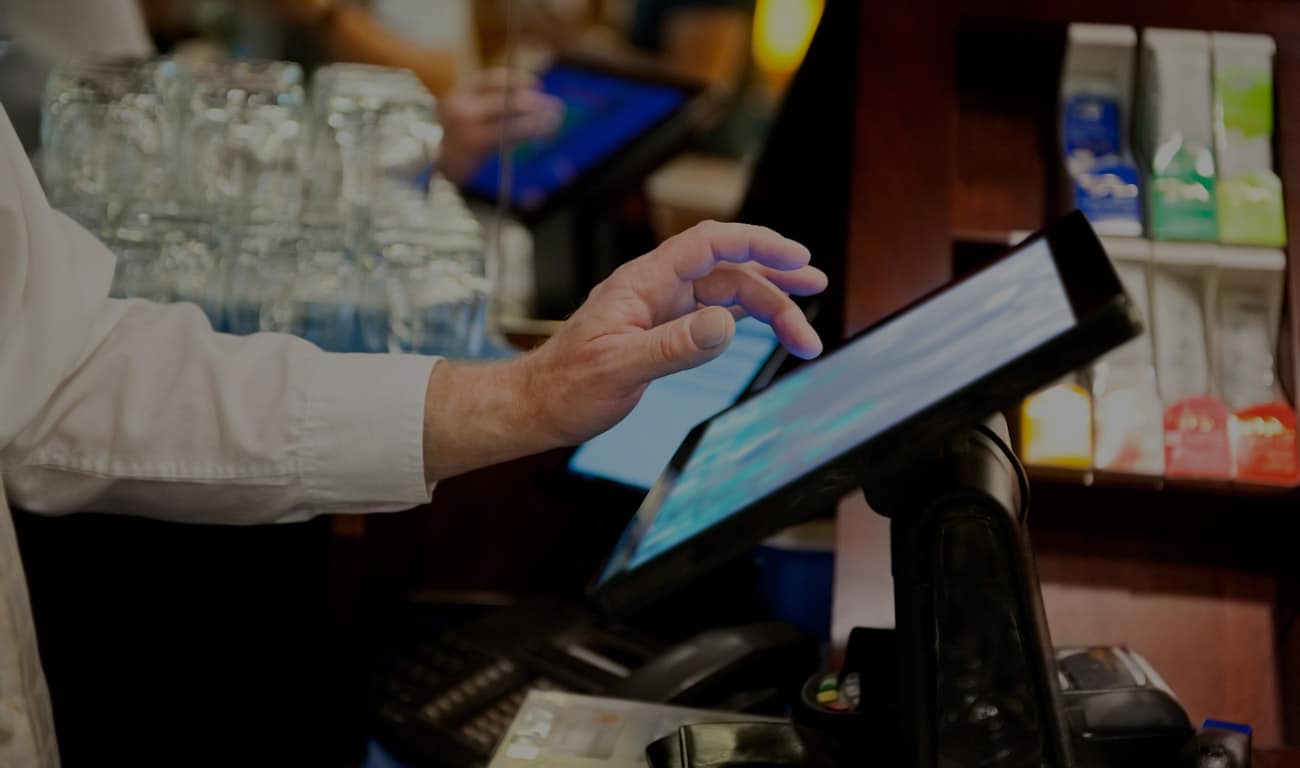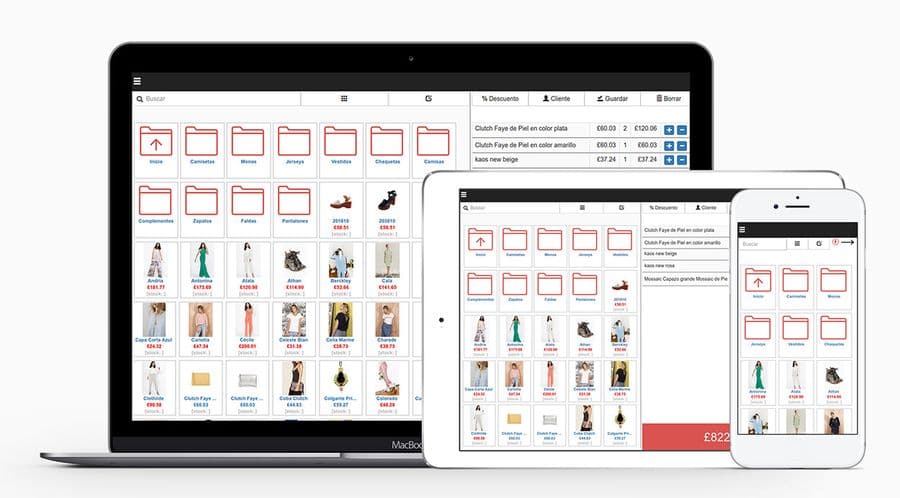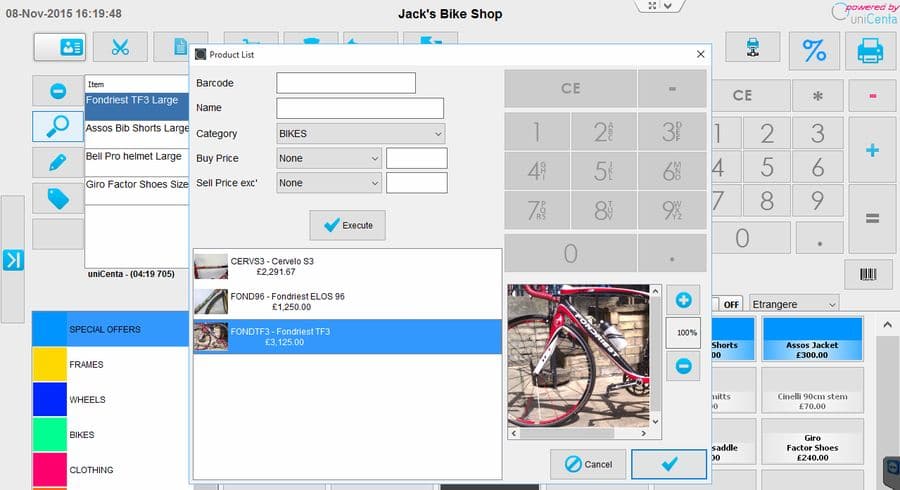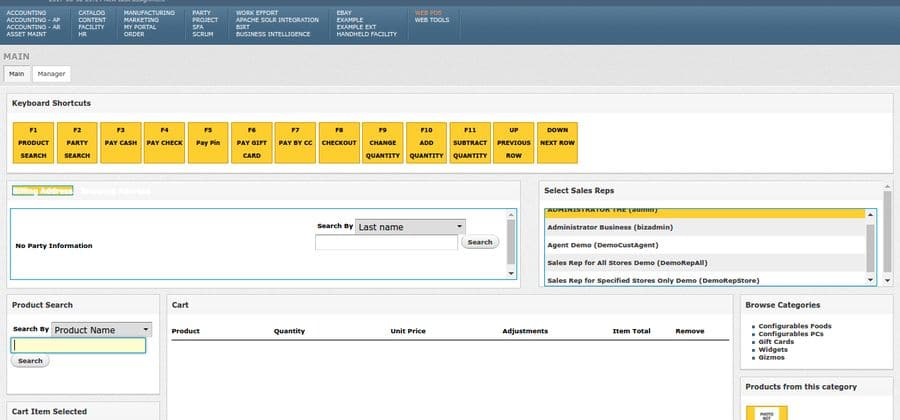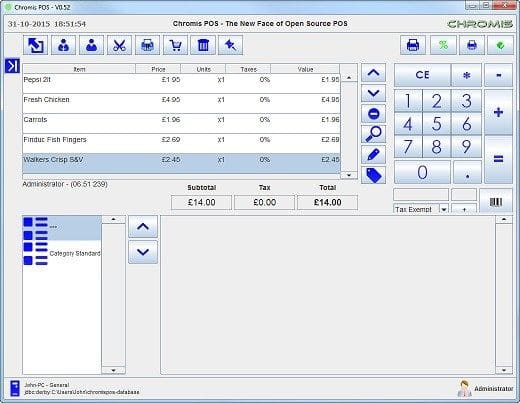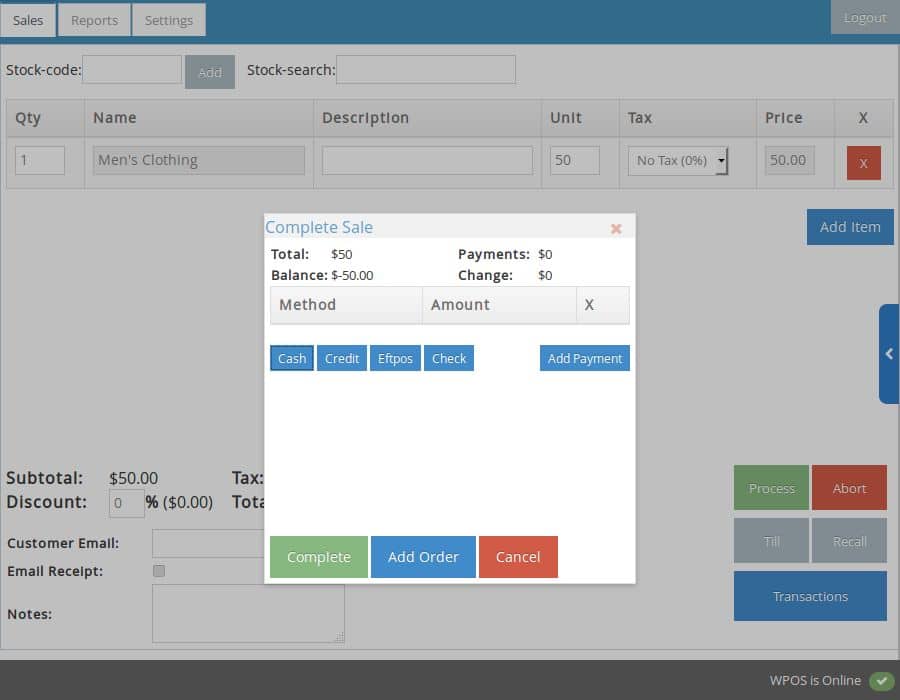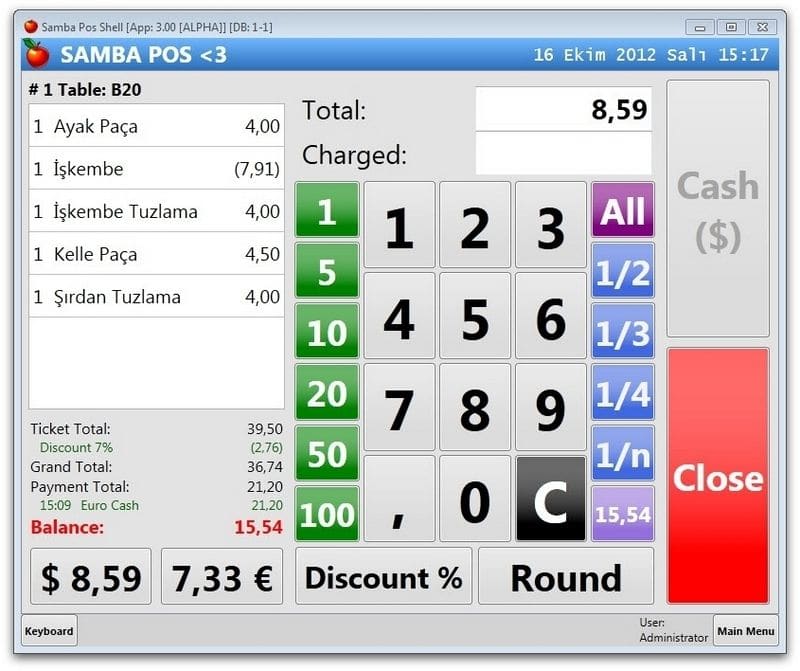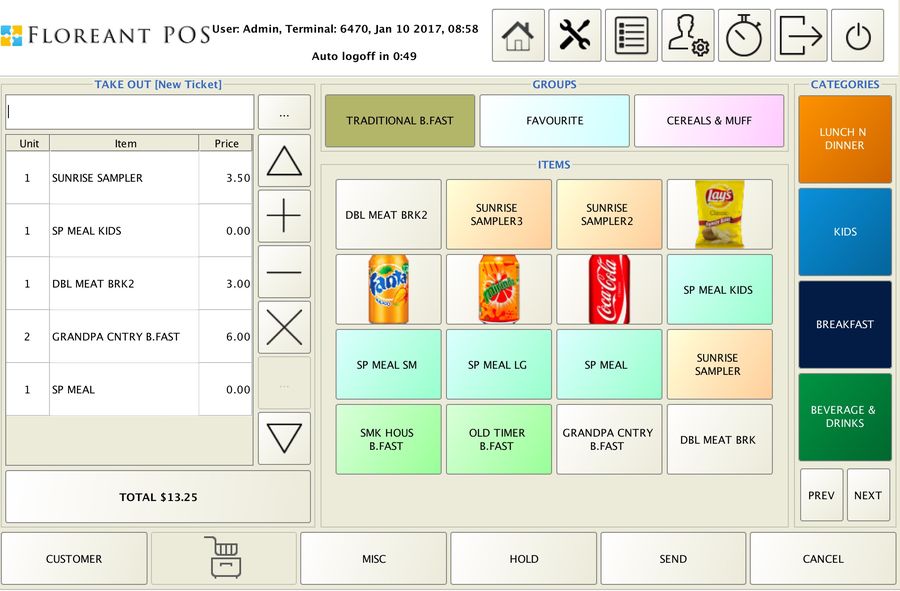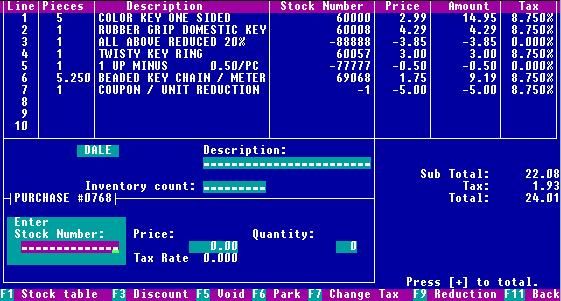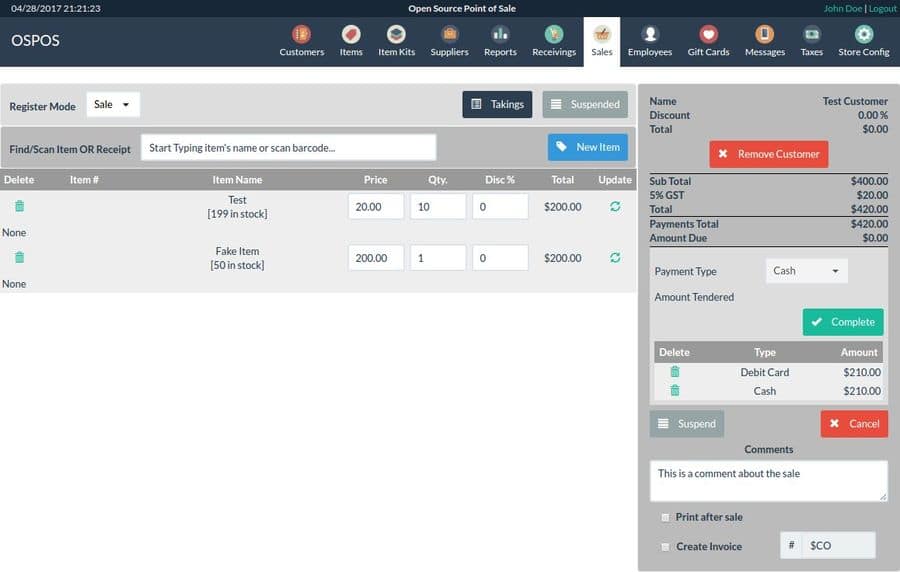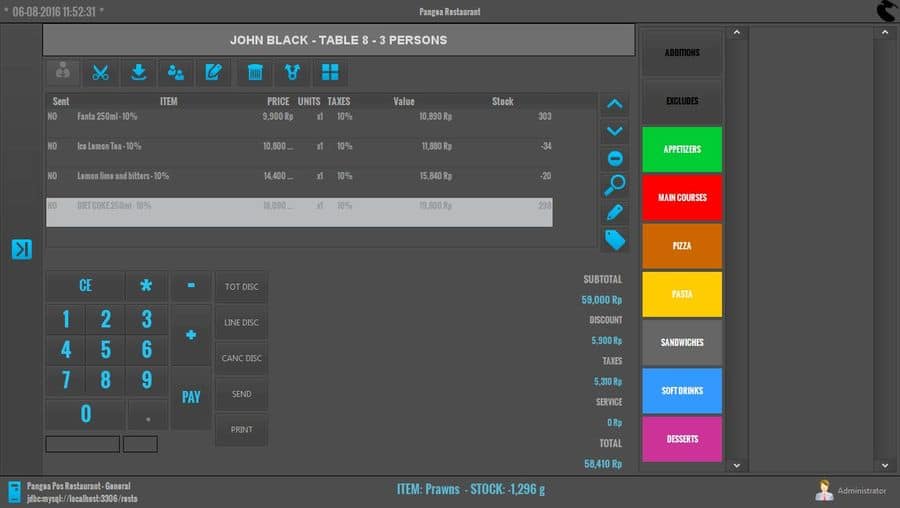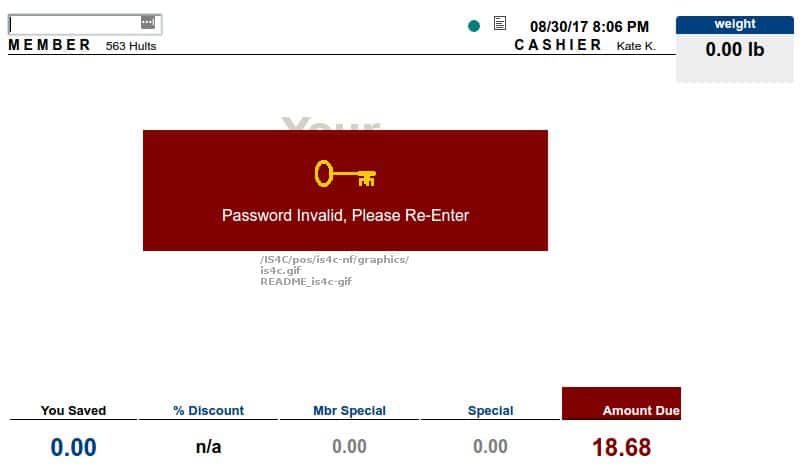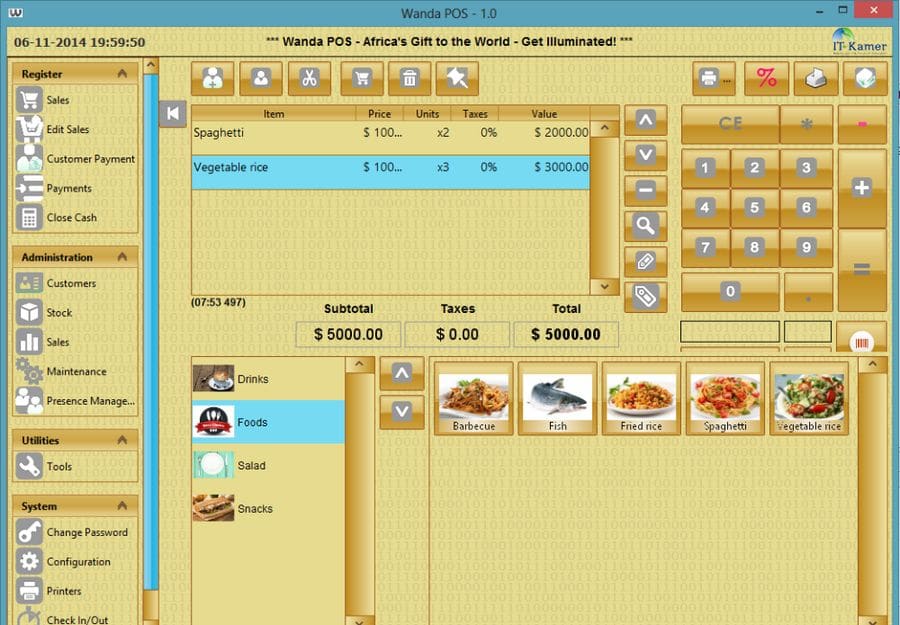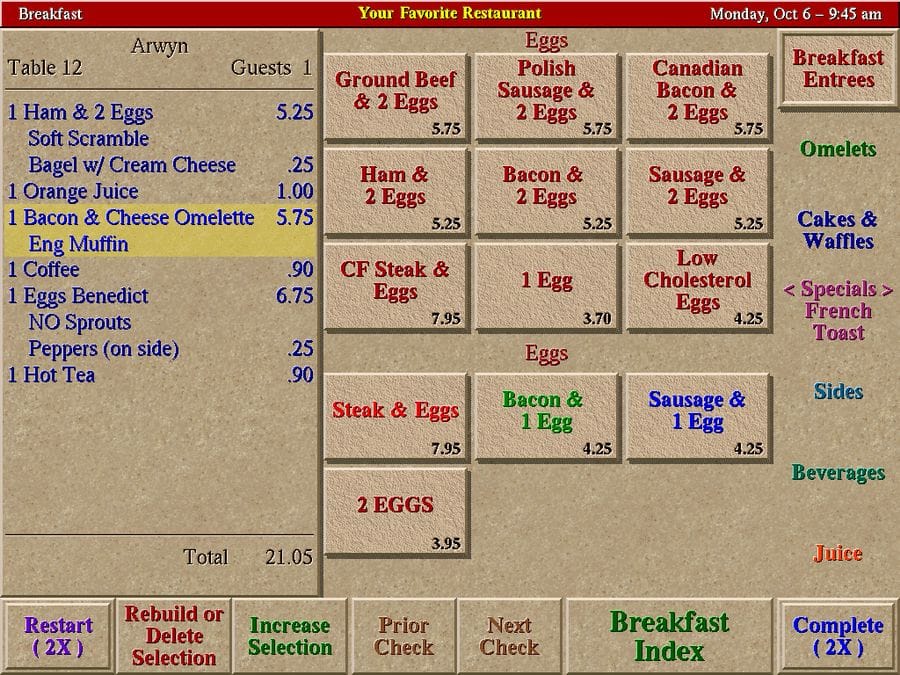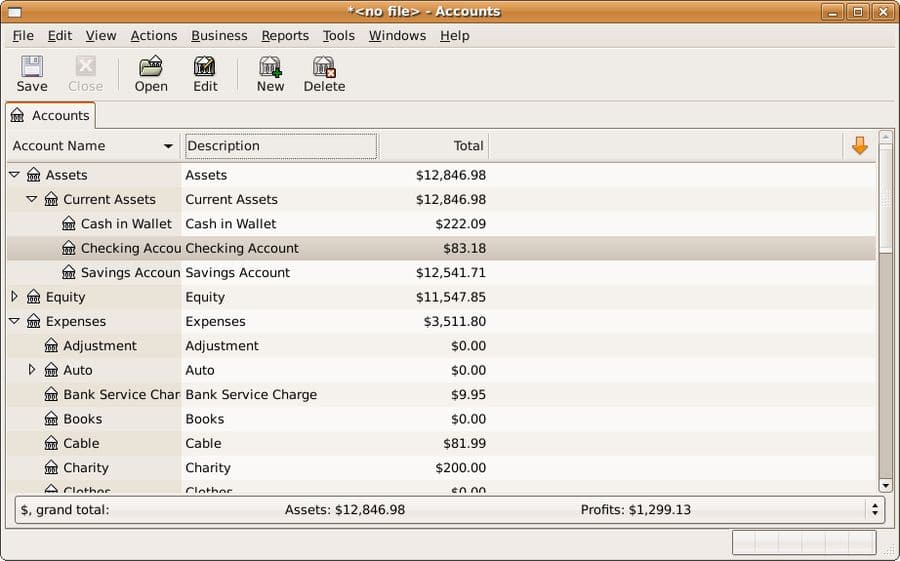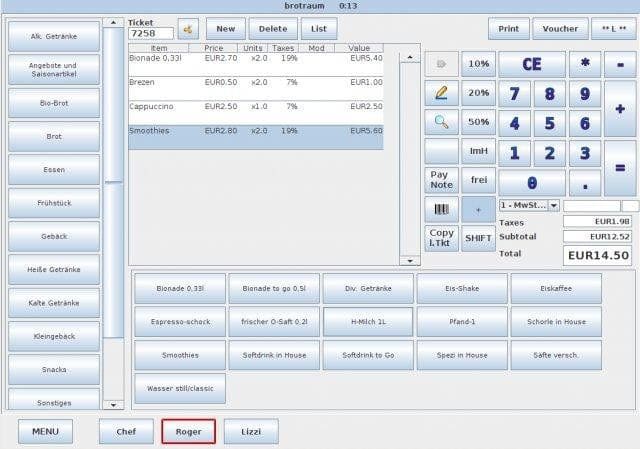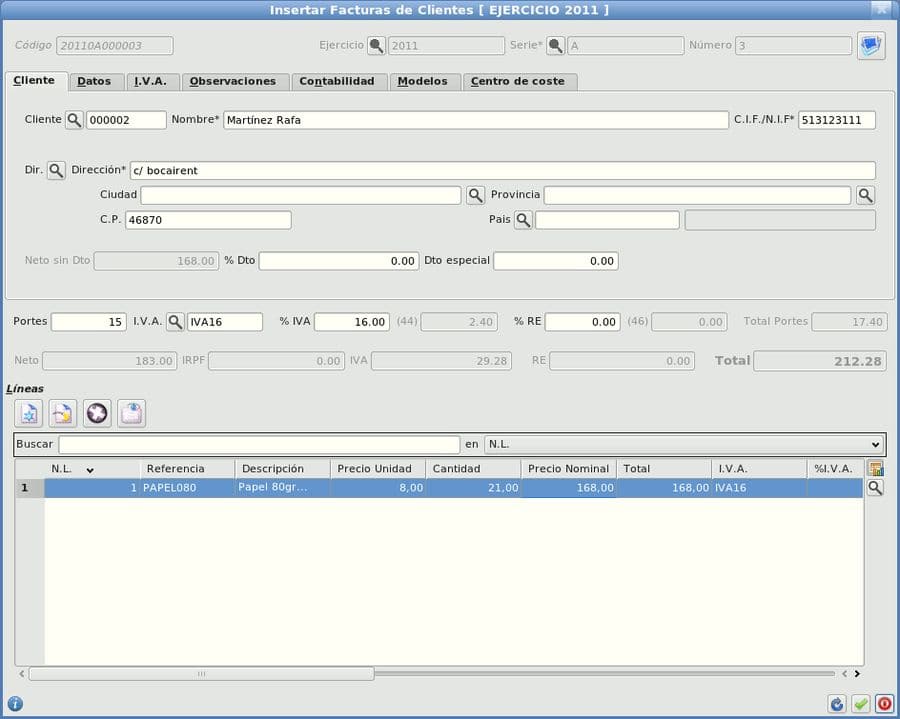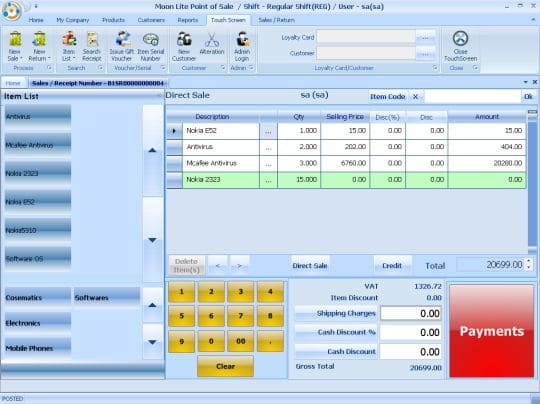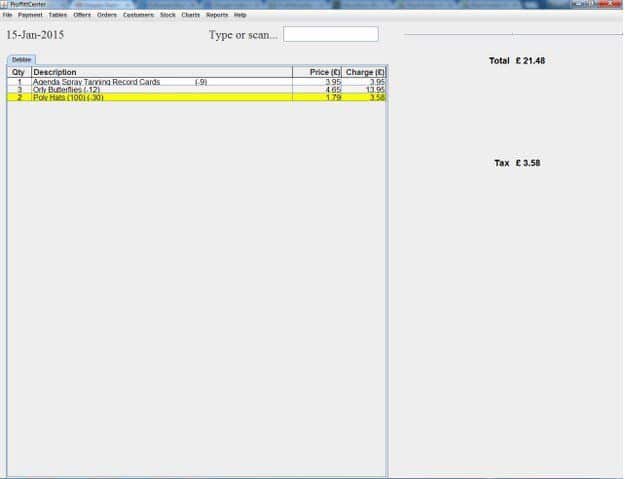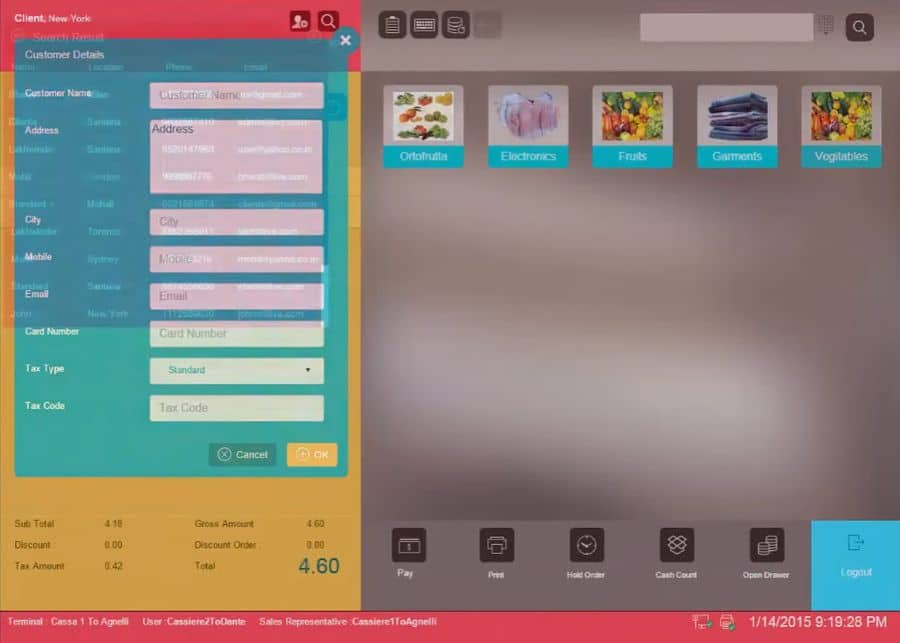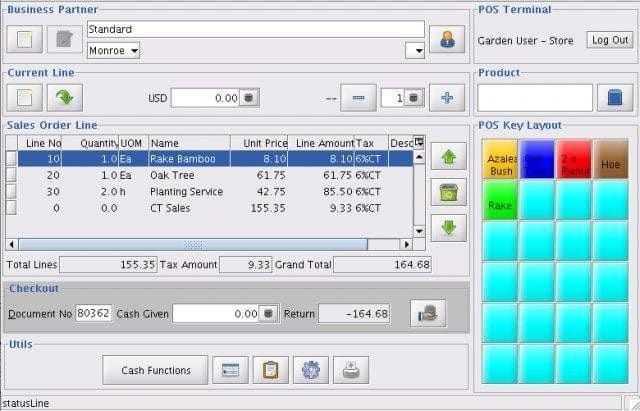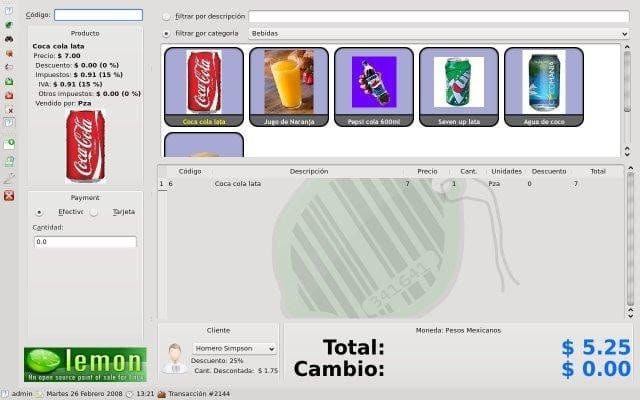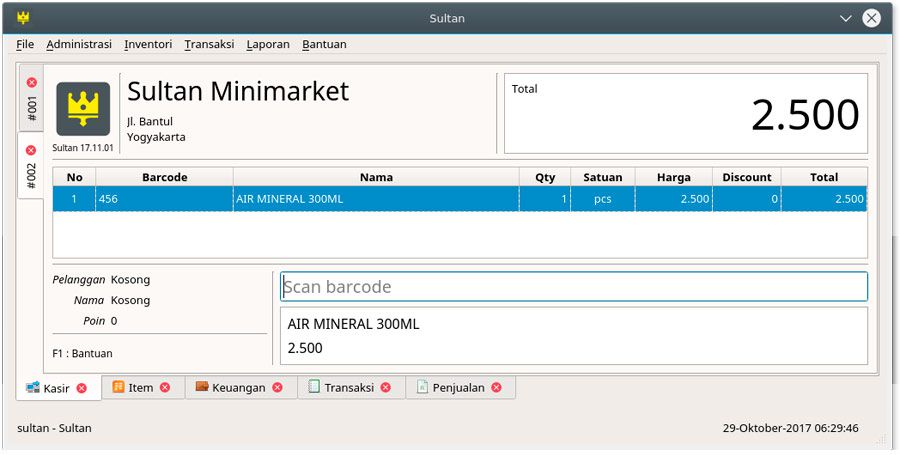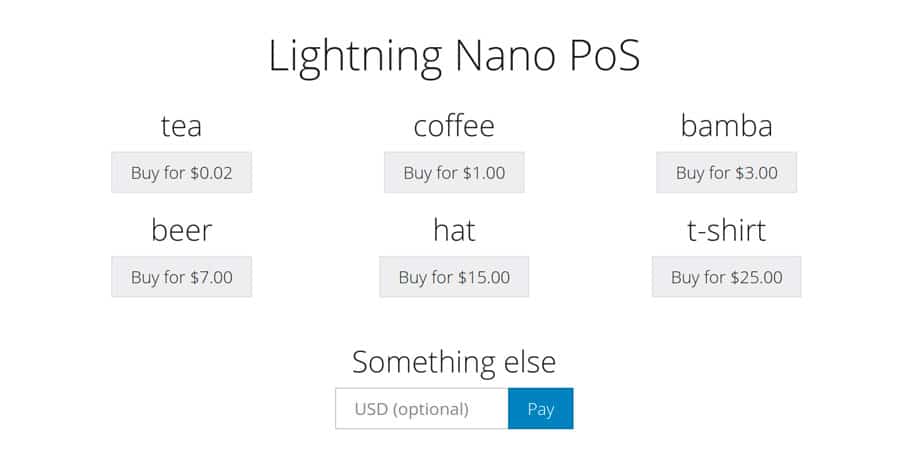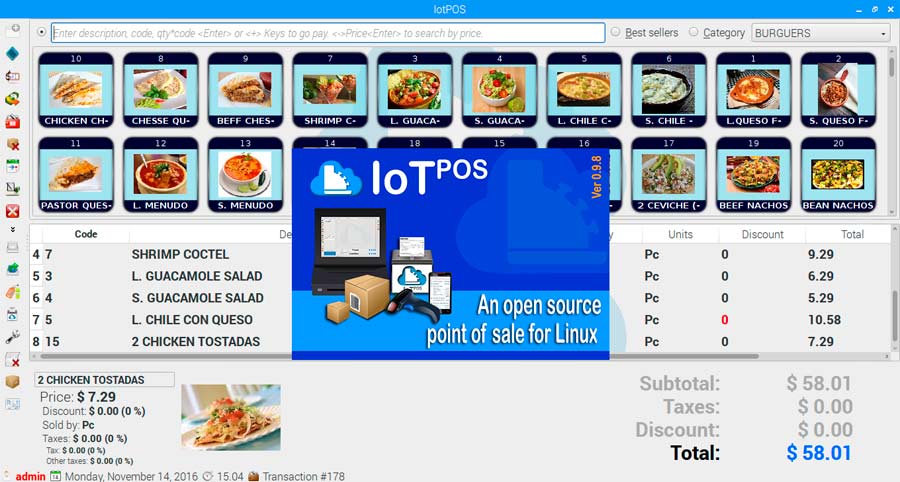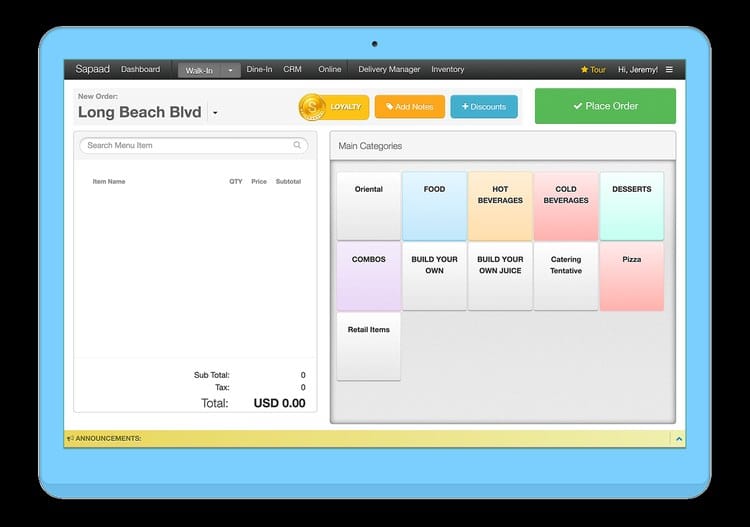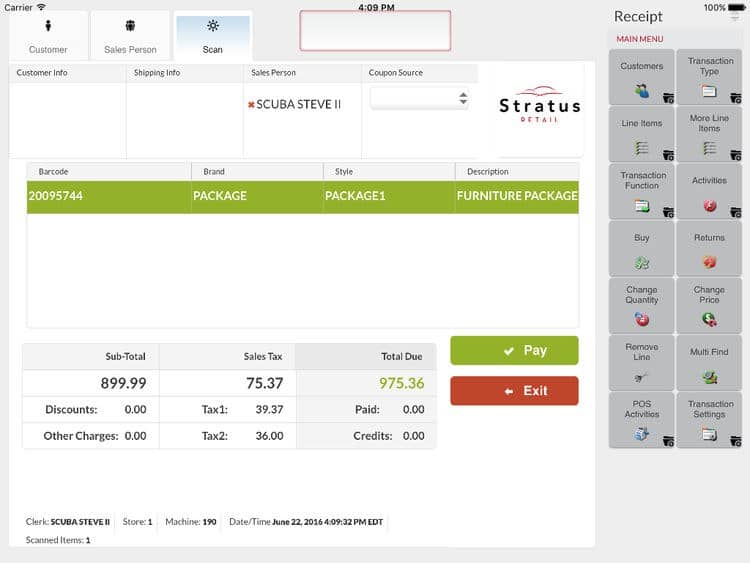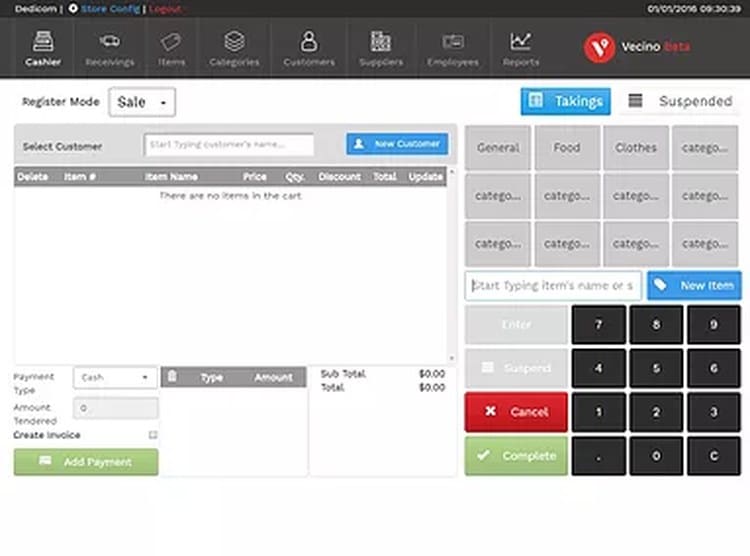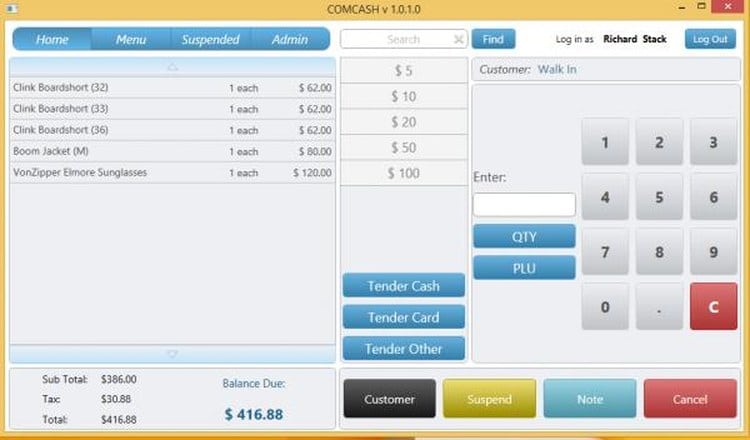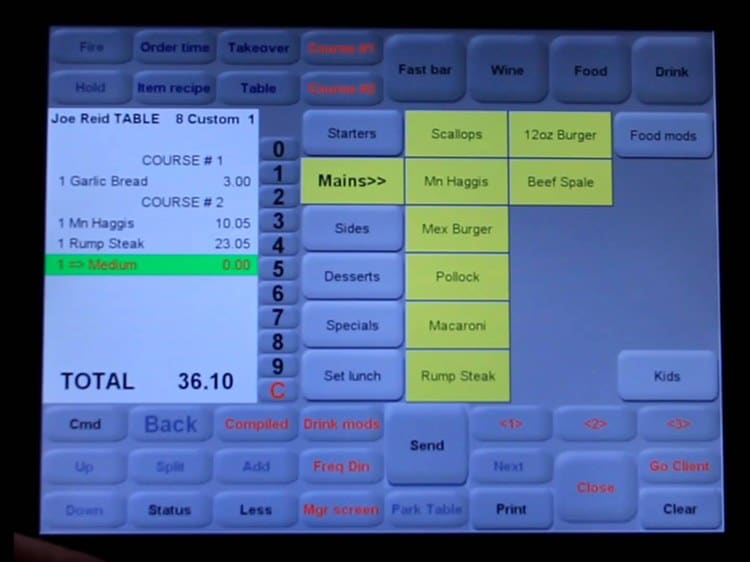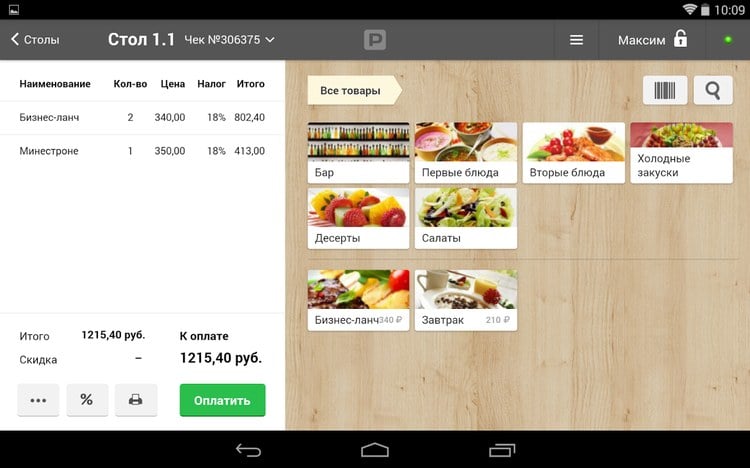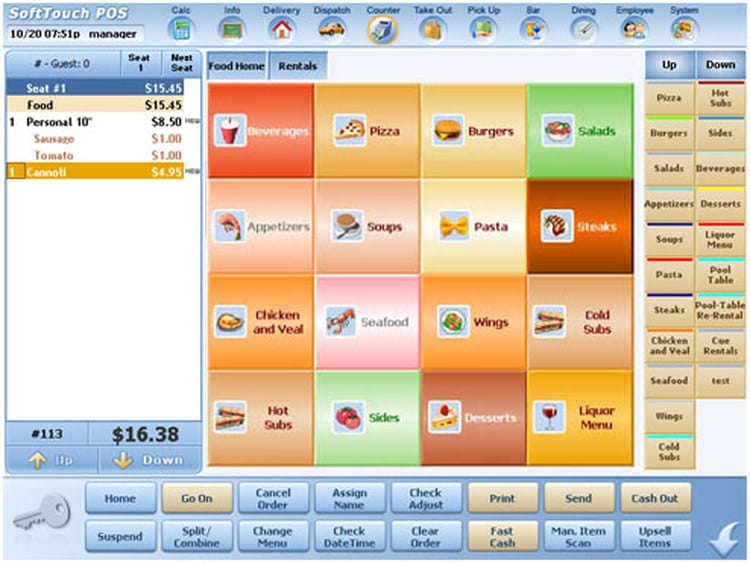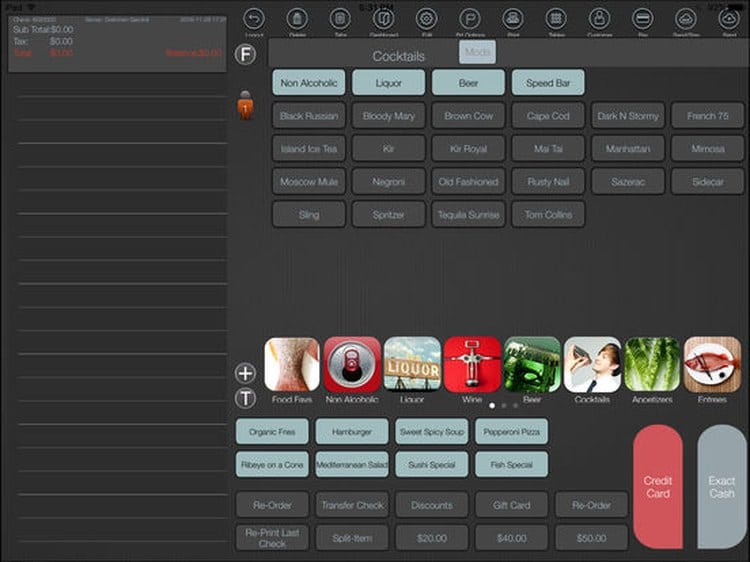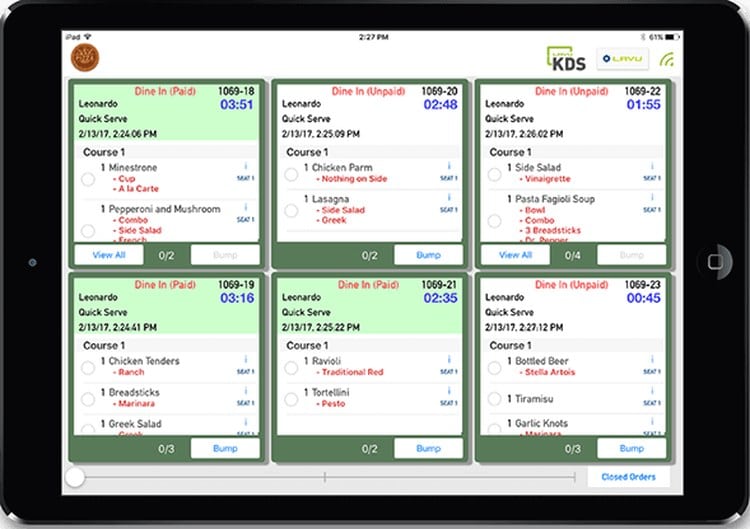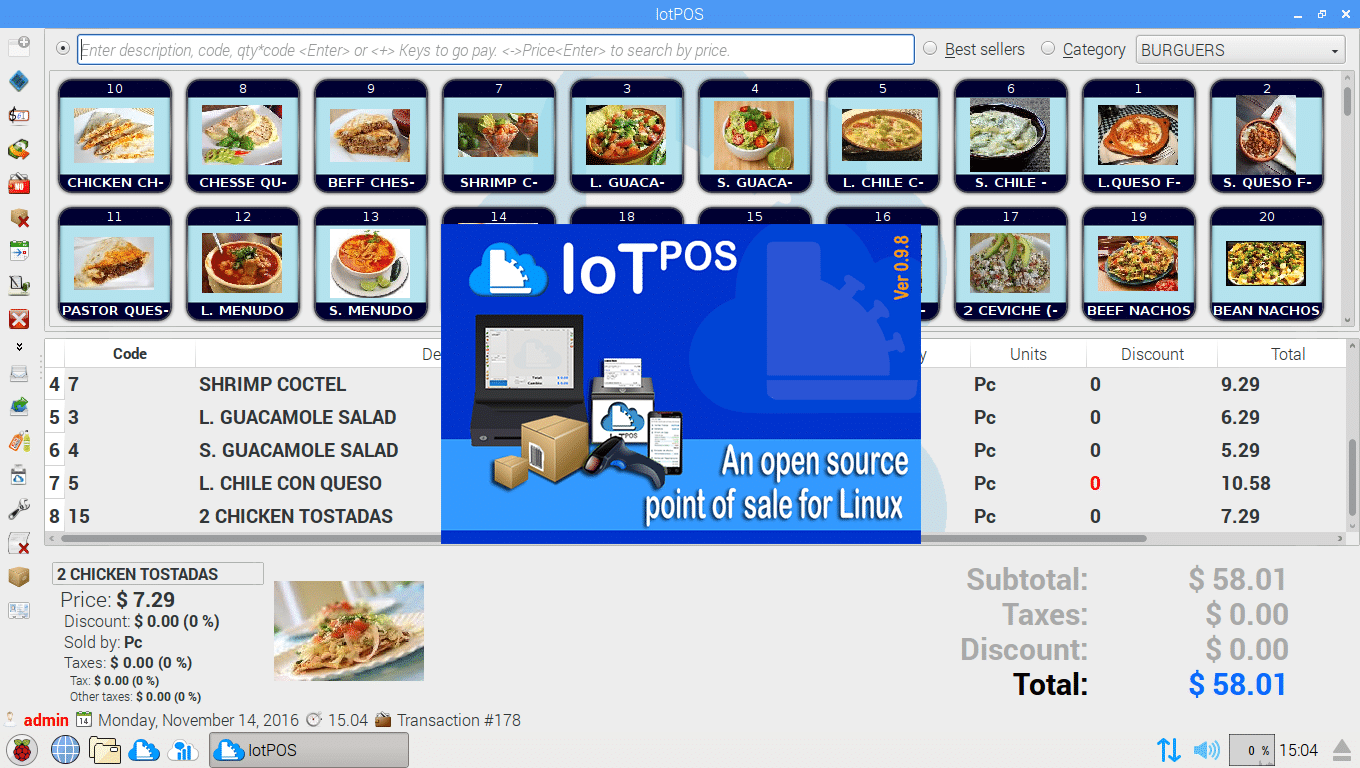Running a physical business is not as easy as it seems. Restaurants, clothing or food stores struggle daily to keep track of cash flow, employees, customers, the warehouse, and cash in and out. It’s a lot of data that has to be sorted out to know what happened in the past, what is happening today, and how to act in the future.
Preventing your employees from putting their hands in the money box, replenishing the stock with head or presenting the invoices to the manager are tasks that if employers must do every day.
To make these operations manageable and scalable, a POS is necessary. If you don’t know what it is, Wikipedia makes it clear in one sentence:
“A point of sale (POS) terminal is a device that, in a commercial establishment, allows the management of tasks related to the sale, such as charging by credit or debit card, creating and printing the sales ticket, managing the inventory or generating reports that help in the management of the business, among others.”
That is why the choice of a point of sale terminal is perhaps the most important technical decision in a store. The problem is that it is very difficult to make a decision and choose the POS that is best for the business. And if we want to save some money and look for a free POS, logically the difficulty of finding the most suitable software increases.
Although there are several free point of sales on the market, each one has certain advantages and disadvantages. As it is natural, to the being free they do not adapt to all the needs that every shop has. For example, some managers are only looking for a simple warehouse program. Others focus more on sales and want ticketing and cashier control software. There are also those who need to store customer files in order to send them advertising or to have a loyalty point program. Finally, there are the intrepid ones who have decided to sell on the Internet and want a TV that synchronizes with their online store.
The first question you should ask yourself before selecting your point of sale is whether you will want to install the point of sale on your computer, or whether you will be cutting edge and your point of sale will work in the cloud. Does it make sense in the middle of 2020 to install a program on a computer?
There is also the decision to choose a point of sale with the right tools. Some are simple and some have dozens and dozens of tools. You know, those kind of programs that to know how to manage 10% of their possibilities you need an intensive course of one week but that will give us an over control of the situation. And on the opposite side, the point of sale minimalist: easy to use and light to say the least that promote the minimalist management of shops. And although personally I am in favour of the latter (the minimalists), in large stores it is possible that what I call “macro-pos” are necessary.
It is this kind of factors that determine if you have found the point of sale you needed or not.
In this article I will show you 25 free point of sale programs that will help you manage your business without spending a single euro. The 25 that I am going to list below are different from each other, and practically only share the fact of being free differing in the rest of features: design, functionality, compatibility, ease of use, etc…
Each of the point of sale you will see below has strengths and weaknesses. And before you start studying them one by one, you should know that there is no such thing as a perfect point of sale, nor is there one that rigorously adapts to your way of working. Acquiring a point of sale is very similar to working with someone else with whom you only share certain things. I mean, you have to choose the point of sale that comes closest to your idea of running a store, but assume that you will also have to sacrifice and adapt to the way the program works. If you are looking for something that is exactly as you imagined it, you should still consider stopping looking for a free point of sale and investing in the development of a custom software.
1- Catinfog
The first point of sale we’re going to look at is Catinfog. Catinfog is a point of sale that we could define as “plug and play”. You don’t need any requirements to start using it. It doesn’t matter what your experience is with software because it’s extremely easy to use. Even a child could keep a store tidy with this point of sale
The design is the one that is being imposed in the United States in the new generation of point of sale.
It works 100% in the cloud, and this means that it is handled as if it were a web page from Chrome, Safari, Mozilla Firefox or any other browser. It doesn’t matter if you’re using a mobile phone, a computer or a tablet because it fits perfectly to any kind of screen even if it’s a touch screen. It does not matter either the operating system (Windows, Mac, android, linux, etc…). It is compatible with any printer and any barcode scanner.
For merchants who want to make the leap to selling on the Internet, Catinfog has the possibility of maintaining an unattended online store. Come on, the point of sale products appear in the online store, and the stock, prices, etc.. are the same.
To try it out you just have to register on their website.
Ease of use: Very high
Scalability: Being in the cloud and being able to create cash registers with a click, it can be implemented in hundreds of stores in minutes.
Compatibility: Any operating system, any screen, any printer or scanner.
Works in the cloud: Yes.
Online store included: Yes.
Link: https://catinfog.com/en/
2- Unicenta
Unicenta is an old school point of sale opensource. It’s actually an openpos fork (we’ll see it in this list) with some modifications. Its community, although it has decreased over time, is still active. Their web is in English, but they do have a package with the Spanish and other languages.
Their big advantages are their free code (and therefore free) and that they work in the cloud. It is also a software centered in the pos, and therefore it is not the typical program in which the point of sale is only a part of the system.
Among its disadvantages we can see that the interface is not of the current point of sale generation and that it does not have an online store.
To handle it you must have an apache server and Mysql.
Ease of use: It takes some time to understand the operation but is affordable.
Scalability: High.
Compatibility: Any operating system, only computer screens, any printer or scanner.
Works in the cloud: Yes.
Online store included: No.
Link:https://unicenta.com/
3- Ofbiz
Ofbiz is a point of sale module that is installed inside the erp they offer. It’s free and Apache licensed, which means that it’s free and allows you to modify the code as you like. The code is java. The community is not very abundant, but the project is still alive this 2020.
The problem I see is that java is a language in decline from the latest generation libraries. Its design seems to be anchored in 2004.
In spite of its drawbacks, I would like to emphasize that it is one of the few projects that have so much time and continue getting updates. They have even enabled a module to create an online store.
Ease of use: Medium-low. It is necessary to consider that it is not only a point of sale, but a complete system of invoicing, accounting and management of the company. It requires some time of training.
Scalability: High since it works in the cloud
Compatibility: Computer screens and any type of printer or scanner.
Works in the cloud: Yes.
Online store included: Yes.
Link: http://ofbiz.apache.org/
4- Chomis
Chromis is an open source point of sale with a mainly Anglo-Saxon community. It is focused on businesses that serve food. In fact, the star module is a kind of blackboard with the commands. It only supports 1024×768 screens.
Its great asset is its simplicity. It doesn’t work in the cloud, but it can be installed in Windows, mac and linux. It’s so light that it can run perfectly on the well-known Raspberry Pi 2.
As a problem we could mention that the simplicity is taken too far in the interface, which seems to be straight out of the 90s. Although at least it doesn’t harass with tools everywhere.
Ease of use: Medium-High
Scalability: Low.
Compatibility: Windows, Linux, Mac.
Works in the cloud: No.
Online store included: No.
Link: http://chromis.co.uk/
5- Wallace Pos
Wallace is an open source point of sale that with 4 developers have achieved something quite interesting in a modern cloud code: php. Their interface is halfway between the nineties and 2010. But it is appreciated that they have used a current css library. The only language is English, although it can be translated if you touch the code.
It’s a pity that such an interesting project comes to nothing because of not creating a community, since their website has no forum, and their github page has no movement. Even so, small shops with not too many requirements can risk using it in production.
Ease of use: Medium-High
Scalability: High.
Compatibility: Compatible with any printer and scanner Can only be used on computer screens.
Works in the cloud: Yes.
Online store included: No.
Link: https://wallacepos.com
6- Samba
Samba is a point of sale developed for Windows and according to its author is intended to be used in the hospitality industry. It is quite simple, which makes it a software with few errors. It hasn’t been updated for 4 years, but the question section of its website is still receiving messages today.
The design is the usual one for the moment it was programmed. It has a Spanish version and the big advantage is that it can run on any computer from 15 years ago.
Ease of use: Medium
Scalability: Low
Compatibility: Medium
It works in the cloud: No.
Online store included: No.
Link: https://sambapos.org/en
7- Floreant
Floreant is a free point of sale in English specializing in restaurants, although any type of store can use it. With code written in java, it is compatible with most operating systems. It can only be used on large screens. It can be installed on cloud servers.
Its great advantages are that it is specialized in one sector. For example, it is perfect for managing all the printers in a restaurant (kitchen, bar, etc). Its big disadvantage is its slow development (it does not release updates since 2015) and its interface reminds of windows xp.
Ease of use: Medium
Scalability: Medium
Compatibility: High.
Works in the cloud: Yes.
Online store included: No.
Link: http://floreant.org
8- Keyhut
Keyhut is a point of sale that I love. It’s what it is and he doesn’t want to hide it. It’s a vintage point of sale that was used in the eighties. In fact, his website has the same aesthetic. It is so light that any computer can move it. The problem is that it’s only compatible with operating system two. As a computer scientist, I find it a gem, and it has all my sympathy. As an entrepreneur, I’m not sure it’s the best choice. For example, it has been more than 2 decades since printers have been manufactured that are compatible with this operating system.
The biggest advantage it has, in my opinion, is that it is very tried and tested and can have few errors. For this point of sale I am going to include a new parameter: the glamour.
Ease of use: Low.
Scalability: Low.
Compatibility: Low.
Works in the cloud: No
Online shop included: No.
Link: http://keyhut.com/pos.htm
9- Ospos
Ospos is a point of sale for those who have a history and thanks to the work of its developers several forks have been created based on its code. Ospos is an opensource software that is only point of sale. Perhaps the best of the open source ones. Its control panel has a very careful aesthetic, although it has many more tools than most shops need and this can make you spend more time than necessary to learn how to use it. The point of sale interface is well cared for, but it stays in the previous generation to the new ones. In the visual section, this is its weakest point.
The strongest point is that its developer community amounts to 48 contributors and that it has regular updates. To install this point of sale you need an apache server and Mysql.
Ease of use: Medium-High.
Scalability: High.
Compatibility: High.
Works in the cloud: Yes
Online shop included: No.
Link: https://github.com/jekkos/opensourceposopensourcepos
10- Pangea
Pangeapos is another attempt by the generous open source world to make something useful and modern for retail. The biggest problem I see in testing it is that the developer has done it by looking at old point of sale interfaces.
The rest is quite usable. Especially if the retailer using it is a hospitality industry.
It only works in Windows operating system.
Scalability: Low.
Compatibility: Only compatible with Windows.
Works in the cloud: No.
Online store included: No.
Link: http://pangeaopenpos.com/
11- Core pos
Core pos is an open source pos maintained by 17 programmers in their spare time. Its community speaks the language of Shakespeare and does not have a forum where they meet, but they meet by videoconference every Wednesday at a specific time (3pm). A curious way of coordinating. Just for the simple reason that they have managed to launch regular updates with only a few dozen shops using it, it is already a reason to give this management programme a voice. If we also see that it has been developed in php and for mysql, they have our full attention.
Ease of use: Medium-Low
Scalability: Low.
Compatibility: High.
Works in the cloud: Yes.
Online shop included: No. Apparently they are developing it now.
Link: http://core-pos.com/
12- Wandaa
“The POS of Africa”. This is the name of this peculiar POS developed under an opensource licence. With an interface that I don’t know why it reminds me of the video game “Mario”, Wandaa is installed on the most important operating systems: Windows, Linux and Mac. As far as free desktop applications go (it doesn’t work in the cloud), it has a fairly clean interface. Within what we can call plug-and-play POS, this is one of the fastest to implement. It’s a pity it hasn’t released updates since 2014. Even so, I don’t think it needs them thanks to the debugging it has had for years.
Ease of use: Low
Scalability: Low
Compatibility: Medium
Works in the cloud: No
Online shop included: No.
13- View Touch
View Touch is a POS made for hotels. Its great appeal is that it is developed for the open source-loving Linux community. Based on Debian 9.1, it is also compatible with the Raspberry Pi. Although its interface can be improved, I like it a lot because it is one of the few linux natives that have a live development.
Ease of use: Medium-High.
Scalability: Low.
Compatibility: Low.
Works in the cloud: No
Online shop included: No.
Link: http://www.viewtouch.com/
14- Gnu Cash
The name says it all. A Gnu-licensed POS that, although it can be translated, is available in 10 languages and none of them is the language of Cervantes. Its great attraction is that all the code that has been used in this software is free. Although in my opinion, it is one of those programs that survives thanks to the affection that its only developer has for it, we must highlight the merit of having managed to make it compatible with linux, windows and mac. Unfortunately it is a desktop point of sale, and therefore its use will decrease.
I recommend it for the detractors of proprietary code.
Ease of use: Medium-Low
Scalability: Low
Compatibility: Medium
Works in the cloud: No
Online shop included: No.
Link: https://www.gnucash.org/
15- Posper
Like Chromis or Wandaa, Posper is a POS system designed for large touchscreens such as those of computers or 9″ tablets. It is compatible with any operating system running java (Windows, Linux and Mac). The good news is that it fulfils the basic operations it promises and has few or no bugs. The bad news is that it is a dead development, as no updates have been released since 2013.
It is available in Spanish.
Facilidad de uso: Media
Escalabilidad: Media-Baja.
Compatibilidad: Media-Alta.
Funciona en la nube: No.
Tienda online incluida: No.
Enlace: https://sourceforge.net/projects/posper/
16- Eneboo
Eneboo is an open source ERP that has a POS module. For medium-large companies it has the advantage of linking accounting with the POS, but perhaps it is too broad a program for small and medium-sized businesses.
For me it is a relevant software because it is developed by a Spanish community and specifically by David, who is a regular opensource in this country. Although they have not released updates for 4 years, the community in their Google group is very active with answers to all the doubts. This community could go a long way with a little funding.
Ease of use: Medium
Scalability: High
Compatibility: Medium-High
Works in the cloud: Yes
Online shop included: No.
Link: http://www.eneboo.org/site/
17- Moon Lite
Although it has not been updated for 6 years, for those businesses that use low-powered computers, are not convinced by the cloud and only know windows (versions prior to windos 7), Moon Lite can be an option to consider. The only problem is that it has no support. But otherwise it offers the basic tasks for a small to medium sized business.
Ease of use: Medium.
Scalability: Low.
Compatibility: Medium-Low.
Works in the cloud: No.
Online shop included: No.
Link: http://descargar.cnet.com/MoonLite-POS-Point-of-Sale/3000-2067_4-75330204.html
18- Proffitt Center
Proffit Center is a free Point of Sale system that doesn’t stand out in any way except that the developer behind the project updates the code every so often and fixes bugs. And that’s no small thing. It also has an active support forum.
It’s obvious that it’s only for small shops and that we shouldn’t demand too much from it. But to make it work with computers that are a few years old, it is a pos that you should take into account.
Ease of use: Medium
Scalability: Low
Compatibility: Low. Only for windos.
Works in the cloud: No
Online shop included: No.
Link: http://proffittcenter.org/
Link: http://proffittcenter.org/
19- Viena Advantage
Viena is an Erp with a POS module that has the huge advantage of being cloud-focused. It makes use of html5 and this is a guarantee of a future projection.
Like all erp, it is quite complex to use, but if you have a medium-large business, it is worth a look.
Its design is quite acceptable although in my opinion it is a step behind the more minimalist vanguard that bets on saving buttons and leaving the screen clean.
Ease of use: Medium-High.
Scalability: High.
Compatibility: High.
Works in the cloud: Yes.
Online shop included: Yes.
Link: http://viennaadvantage.com
20- Adaxa
Adaxa is another open source erp that comes with a POS module. And we repeat what we have said about this type of software: If you do not have a medium-large company, it is better to use something simpler. Although it may look old visually, Adaxa works very well. It was last updated this year, and although its community is not gathered in a forum, it is quite large. It is developed in Java. What I liked the most is its connection with the popular ecommerce cms Magento.
Ease of use: Medium
Scalability: Medium
Compatibility: Medium-High
Work in the cloud: No.
Online shop included: Yes.
Link: http://www.adaxa.com/pos/
21- Lemon
If you had asked me about Lemon 5 years ago, I would have said that it was the most promising free point of sale on the net. It is a project that was born in 2007 and its community had not stopped growing. But for some reason they closed their website and it is only available for download on sourceforge.
It is only compatible with linux debian.
Its interface is a bit outdated now, but in its time it was one of those that improved those supercharged ones from the nineties.
Facilidad de uso: Media.
Escalabilidad: Baja
Compatibilidad: Baja.
Funciona en la nube: No
Tienda online incluida: No.
Enlace: https://sourceforge.net/projects/lemonpos/
22- Sultanpos
Sultanpos is an opensource POS software. Its most notable feature is that it is programmed in C++ on a framework that runs on linux. It works only offline and focuses on small shops. Maybe I’m too specialised in the cloud, but it was quite difficult to install due to the amount of requirements. However, it works quite well, and with some tweaks it is totally valid to be used in physical shops in the Hispanic world.
Ease of use: Medium.
Scalability: Low
Compatibility: Low.
Works in the cloud: No
Online shop included: No.
Link: https://github.com/apinprastya/sultan
23- Tutapos
Tutapos is an open source Point of Sale and although its creator has not uploaded updates for 3 years has something very attractive: It works in the cloud and is developed in Laravel. The latter may not ring a bell, but it is very important because it makes installation and maintenance very simple with minimal computer knowledge.
Another great advantage in my opinion is that it is very, very, very simple. Of course it is so simple that it only represents that advantage to businesses where the owner is the only employee.
Ease of use: High.
Scalability: Low
Compatibility: Low.
Works in the cloud: Yes
Online shop included: No.
Link: https://github.com/tutacare/tutapos
24- Nanopos
Nanopos is uncomplicated and in 2 clicks the sale is done. Nanopos is simplicity reduced to the minimum expression, and that’s why it works. If you have a business that sells A, b and c, you might want to consider this open source POS software. You will only be able to select the product and close the sale, but any concept that simplifies is fresh air in the sector, and that’s why we put it in our ranking.
Ease of use: High.
Scalability: Low
Compatibility: Low.
Works in the cloud: Yes
Online shop included: No.
Link: https://github.com/ElementsProject/nanopos
25- IotPOS
IotPOS is a fork of Lemonpos (also in this ranking), but its developer has given it so much love and dedication that it deserves to be also in this ranking. First of all he has simplified lemonpos, which is to be appreciated. Secondly, it supports raspberrypi, which is great news for fans of free hardware and everything related to linux. I also suspect that the developer has a physical shop, because it gives real solutions to the problems of compatibility with different brands of hardware. It comes with TStock to manage the warehouse, and has several functionalities related to counters, environment sensors and alarms. Truly, this fork is the work of a lover of commerce, software and open source.
Ease of use: High.
Scalability: Medium
Compatibility: High.
Works in the cloud: Yes
Online shop included: No.
Link: https://github.com/hiramvillarreal/iotpos
26- Sapaad
Sapaad is a POS with an excellent response on touch screens. Its target audience is bars and restaurants. As it is a web application, it can be used on any operating system and any screen, although it does not adapt well to mobile phones. It has an interesting module for home food delivery. It is not as minimalist as we would like, but with a little training we can learn to use it. It is in English and Arabic.
Touch: [4/5]
Scalability: High.
Compatibility: Any operating system, tablet or pc screens, any printer.
Cloud based: Yes.
Online shop included: Yes. For the hospitality industry.
Link: Sapaad
27- Stratus Retail
It is a touchscreen POS, which more than does what is asked of it. And perhaps that’s why it’s not for every retailer. Straus has the vices of the software companies of the past decades, and that is that the point of sale is just a module of an erp, which can also take you to accounting or calculate your payroll. We have selected it because its interface complies with Google’s rules for being tactile, but its complexity makes it only accessible to large chains.
Touch: [3/5]
Scalability: High.
Compatibility: Medium.
Cloud functionality: Partly.
Online shop included: Yes. As an extra module.
Link: Stratus Retail
28- Vecino.cloud
Although its neighbour has a design and layout that has been out of fashion for years, it can be an interesting option for the retail sector in general. Its interface is quite tool-heavy but not in a crude way. The highlight of this POS is that it works in the cloud. The tests we have done from touch devices confirm that it is recommended to use screens larger than 9 inches. Available in English
Touch: [3/5]
Scalability: Low.
Compatibility: High.
Works in the cloud: Yes.
Online shop included: No.
Link: Neighbour.cloud
29- Comcash
Comash is a point of sale system whose greatest virtue is its stability. Its design is very old-fashioned, but it works perfectly well and is not loaded with tools, which is appreciated. Its big problem is that it does not work in the cloud and must be installed as a desktop application. Perhaps its best tactile response is on mobiles, as it has an app for ios. It is in English
Touch: [3/5]
Scalability: Low.
Compatibility: Low.
Works in the cloud: No.
Online shop included: Yes.
Link: Comcash
30- Maitre’D posera
This is absolute minimalism, and for me that’s its greatest virtue. Its large buttons make it fingerprint-proof. Its purpose is to serve to sell without any other objective. The disadvantages are that it is a desktop application and that it connects with the mother program, which you also have to buy to be able to enjoy the point of sale. It is in English.
Touch: [4/5]
Scalability: Low.
Compatibility: Low.
Works in the cloud: No.
Online shop included: No.
Link: Maitre’D pos
31- Joinposter
Joinposter is a POS system aimed at the hotel and catering trade. Its design fits in with the latest generation, minimalist and productive. It differs from other POS systems in its class in that it has table management. It works in the cloud to a certain extent, as it must be installed as an app on android or ios devices, which makes it difficult for it to be compatible with printers and scanners. It is available in English, Polish and Russian.
Touch: [5/5]
Scalability: Low.
Compatibility: Low.
Works in the cloud: Yes.
Online shop included: No.
Link: Joinposter
32- SoftTouch
Made for hospitality, its interface is a link between the old cluttered and unordered designs and the new ones that neatly arrange the buttons. The result is a screen full of options but tidy. It requires a lot of training time. It should be used on screens of considerable size. Its performance in table management, which it does very well, is noteworthy. Available in English.
Touch: [2/5]
Scalability: Medium.
Compatibility: Medium.
Works in the cloud: Yes.
Online shop included:
Link: SoftTouch
33- Aireus
Of all the point of sale on the list, this is the least tactile, although it meets the requirements we have set out above. Its buttons are small and there are too many scattered all over the screen. The problem is that it is designed to be used on an iPad and does not stand out for its large screen. However, it does synchronise its data with the cloud and for that reason alone I’m including it in this list.
Touch: [1/5]
Scalability: Low.
Compatibility: Low.
Works in the cloud: Yes.
Online shop included: No.
Link: Aireus
34- Lavu
It works on ipad, and it works very well. Designed for bars and restaurants, its touch interface is very decent and performs very well. Its web control panel makes it perfect for many hospitality businesses. The only downside is that it is for ipad, as it has a screen that does not respond well with dirty hands. This makes it a perfect POS for restaurant waiters, but not for the bar or kitchen.
Touch: [5/5]
Scalability: Low.
Compatibility: Low.
Works in the cloud: Yes.
Online shop included: No.
Link: Lavu
35- Iospos
Iospos is a fork of Lemonpos that maintains its opensource license and whose main attraction is its compatibility with the famous mini-computer Raspberry Pi. From here you can get an idea of how light it is (it consumes very few resources and is compatible with (large) touch screens). As a major flaw I would say that it is the persistence in using an old-fashioned interface. And as a major virtue its minimalism in the forms despite being based on an interface designed in a dark age in terms of the design of point of sale.
Its opensource license gives developers the freedom to adapt this pos to almost any environment without paying licenses. Its community is still small and its updates depend on the Lemonpos project, so we will have to cross our fingers if we want updates in the future.
Touch: [3/5]
Scalability: High.
Compatibility: Medium.
Works in the cloud: Yes.
Online shop included: No.
Link: Iospos
